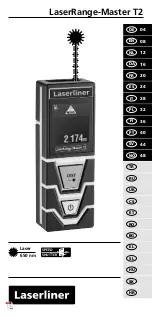
Technical data
Proline Promass O 100 HART
102
Hauser
Influence of medium
temperature
Mass flow and volume flow
When there is a difference between the temperature for zero point adjustment and the
process temperature, the typical measured error of the sensor is ±0.0002 % of the full
scale value/°C (±0.0001 % of the full scale value/°F).
Density
When there is a difference between the density calibration temperature and the process
temperature, the typical measured error of the sensor is
±0.00005 g/cm
3
/°C (±0.000025 g/cm
3
/°F). Field density calibration is possible.
Wide-range density specification (special density calibration)
If the process temperature is outside the valid range (→ 100) the measured error is
±0.00005 g/cm
3
/°C (±0.000025 g/cm
3
/°F)
[kg/m ]
3
[°C]
-40
0
-80
40 80 120 160 200 240 280 320 360 400[°F]
-40
0
50
100
150
200
0
2
4
6
8
10
2
1
A0016612
1
Field density calibration, for example at +20 °C (+68 °F)
2
Special density calibration
Temperature
±0.005 · T °C (±0.005 · (T – 32) °F)
Influence of medium
pressure
The table below shows the effect on accuracy of mass flow due to a difference between
calibration pressure and process pressure.
o.r. = of reading
DN
[% o.r./bar]
[% o.r./psi]
[mm]
[in]
80
3
–0.0055
–0.0004
100
4
–0.0035
–0.0002
150
6
–0.002
–0.0001
Design fundamentals
o.r. = of reading, o.f.s. = of full scale value
BaseAccu = base accuracy in % o.r., BaseRepeat = base repeatability in % o.r.
MeasValue = measured value; ZeroPoint = zero point stability
Summary of Contents for Proline Promass O 100HART
Page 140: ...www addresses endress com ...
















































